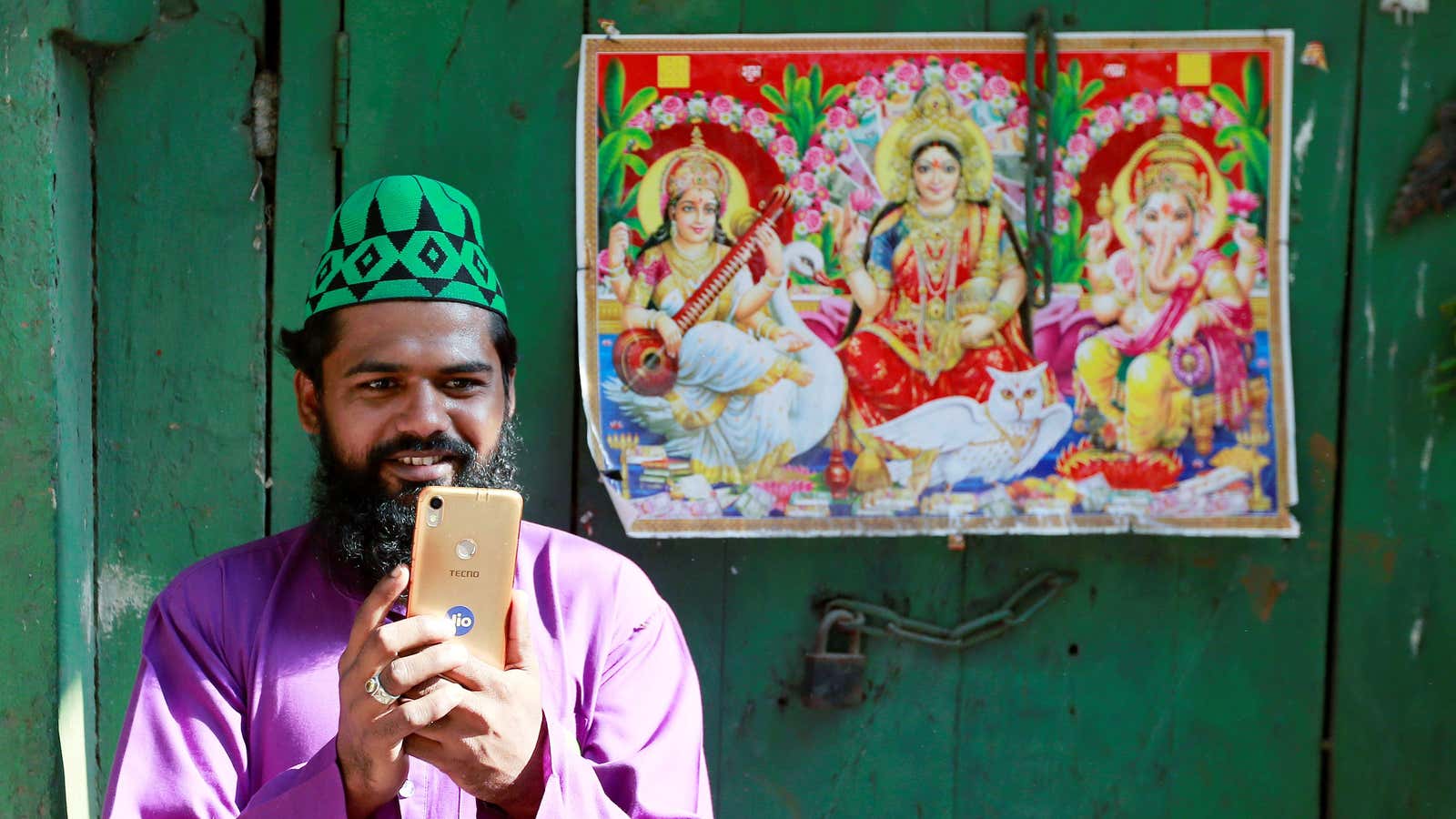With over 350 million people aged between 14 and 24, India is home to much of the world’s youth. And with 45 million eligible new young voters, what they want and need can play a great role in the current Lok Sabha election.
In line with a global trend, many young Indians have expressed a desire to sit the election out, or a lack of interest in national politics and the conversations revolving around it. But many others are aware and engaged. Quartz met two groups of them: in Anupshahar, Uttar Pradesh, it was female Hindu voters from a low-income background; in Chandni Chowk, Old Delhi, it was male Muslim students.
What they had to say painted contrasting images of the government, its successes, and the country’s political climate, showing just how deep the lived experiences of different communities can be.
Better jobs, education, and infrastructure—and fewer reservations
In Anupshahar, Quartz met with several young women working within the premises of Pardada Pardadi, an educational organisation that’s been educating girls and helping women get employment and financial independence for about two decades. Though each had different ideas on what the main priorities for the government are, they all agreed on one count: an enthusiastic support of prime minister Narendra Modi.
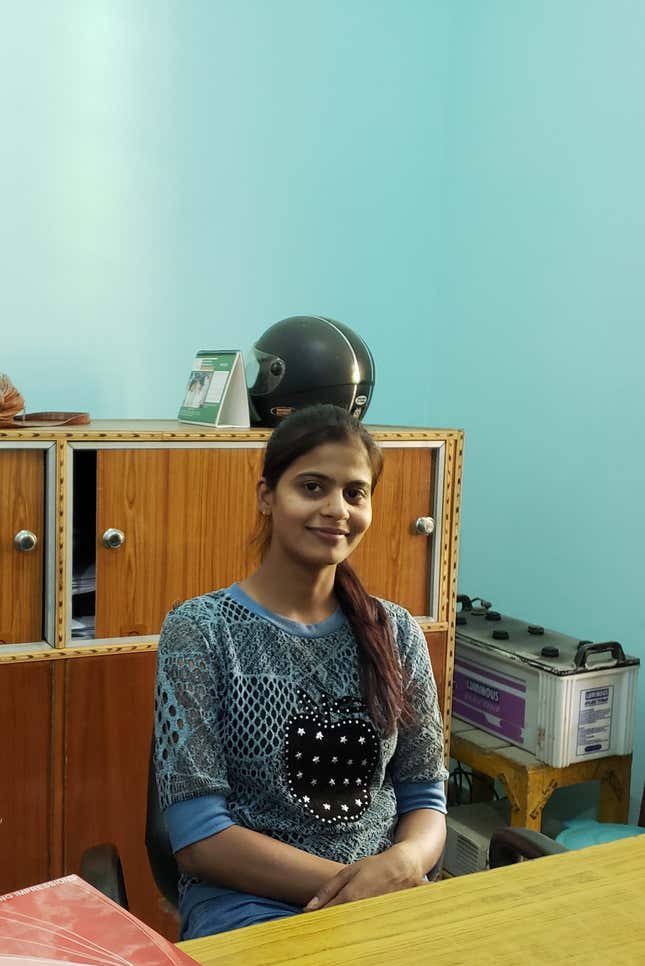
Name: Priya Sharma
Age: 26
Occupation: Communications assistant
Party of choice: Bharatiya Janata Party (BJP)
Sharma says she appreciates Modi’s tough words on terrorism. She also notes that a government programme has helped farmers by giving them Rs6,000 as income support. That helped her family, which, like most others in Anupshahar, is employed in farming.
Sharma is also pleased with the introduction of 10% reservations in jobs and education for poor people of general castes, and hopes the government will get rid of reservations altogether. She considers that as a sign of everyone being equal in the country, regardless of religion and caste. However, she thinks a law giving reservation to women in the Lok Sabha should be passed.
She wishes to see more work done for women, particularly in improving their access to education and employment. Sharma thinks safety and general gender equality are a responsibility of the individual: “The government can’t do anything unless we improve our thinking.”
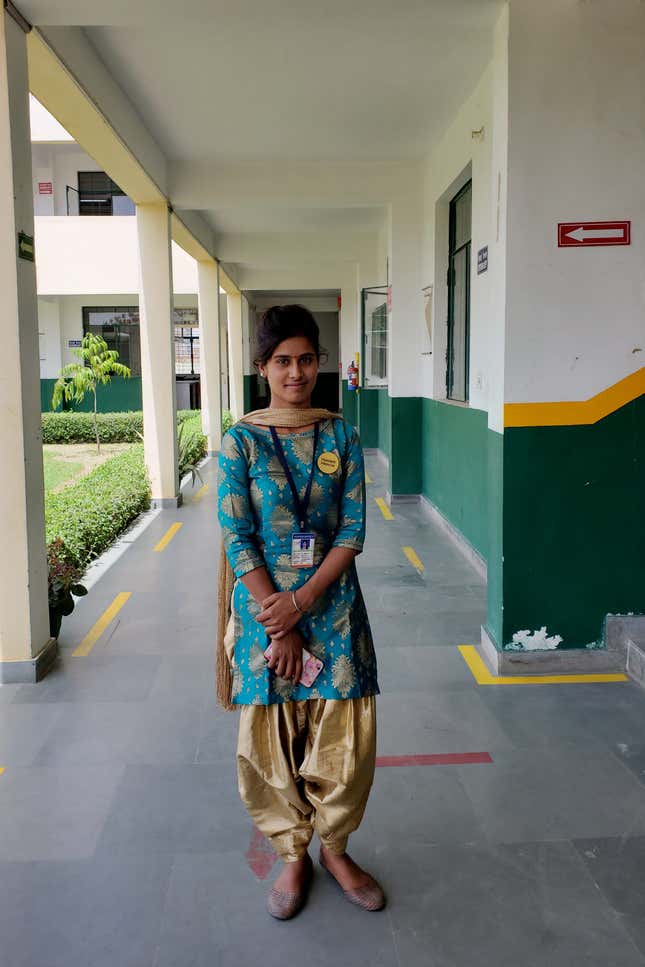
Name: Princhi Chaudhuri
Age: 20
Occupation: Workshop trainer and college student
Party of choice: BJP
“Modi has done many things for India,” Chaudhuri says, singling out income support for farmers, demonetisation as a way to get rid of black money, and access to basic health care.
She thinks there is still a lot that should be improved, including more support for female employment, pensions, and widows. She also thinks the government should offer better hospital facilities, particularly for women.
Chaudhuri does not think there is a difference between people because of their religion: “Everybody should be the same,” she says. “We all are Indians.”
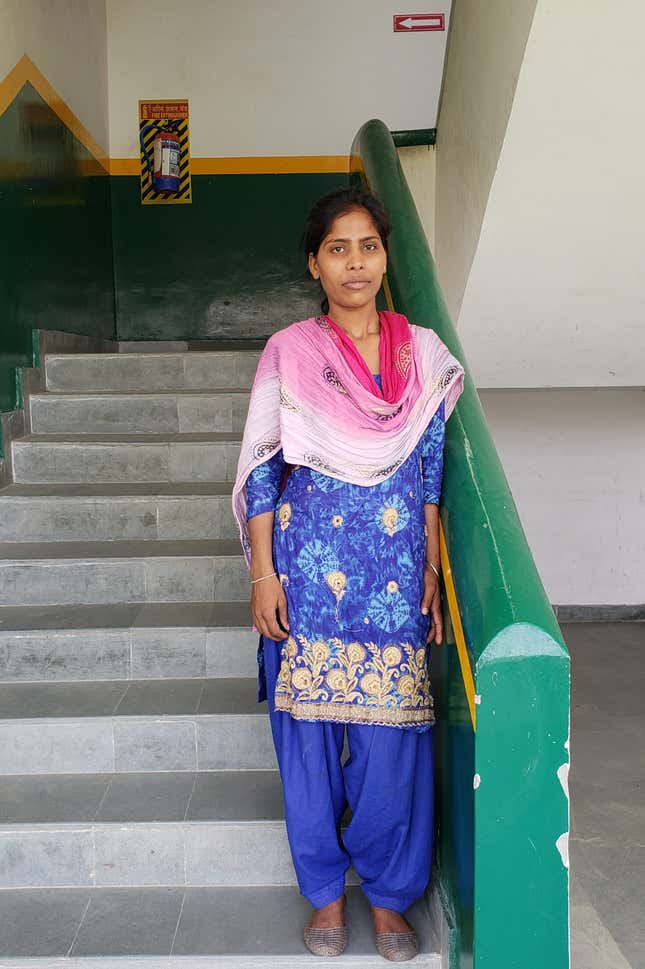
Name: Devati Kumar
Age: 20
Occupation: Employed in manufacturing
Party of choice: BJP
“The government is doing [things] but I expect it to do more,” Kumar says. In making her choice of party, she asks herself whether they will develop the country, for instance by building better roads or providing water. She also wants the government to ensure that girls have access to education by both helping parents support their daughters through school, and empowering teachers to force families to send their kids, particularly girls, to school. As someone who dropped out of school at the end of the eighth grade, she feels very strongly about it.
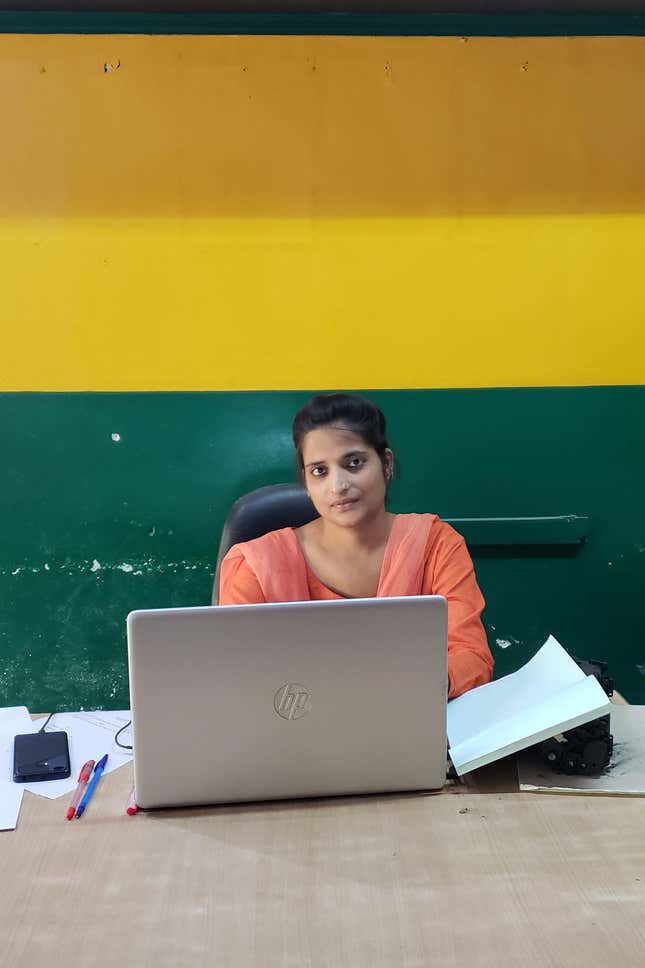
Name: Shahin Sultana
Age: 25
Occupation: Administrative assistant
Party of choice: BJP
“Narendra Modi is good for the country,” says Sultana. “He is thinking about digital India and having everything online.” She feels digitisation and improved connectivity help transparency and reduce the opportunity to commit fraud or corruption.
She would like to see more female employment, and to have government programmes that help women become financially independent, particularly by supporting small businesses.
Communal harmony is more important than development
In Old Delhi’s Chandni Chowk, Muslim voters are a particularly important minority. They make up about 20% of the voters in the district, and the community is quite vocal about its distrust of the BJP and of the communal rhetoric it supports.
“No educated Muslim will vote for Modi,” Maulana Shami Tehrani, professor emeritus at the Dr BR Ambedkar National Institute of Social Sciences, Mhow, Madhya Pradesh, told Quartz in Fatehpuri Masjid, right by the bustle of India’s biggest market. “Modi has again partitioned the country into two groups: Hindus and Muslims,” he said, adding, “Dividing people on basis of religion was Jinnah’s [Muhammad Ali Jinnah, Pakistan’s founder] policy, not Gandhi’s.”
“I have never faced discrimination for being a Muslim either in my school or neighborhood,” said Mehreen, a 15-year-old student who is too young to vote but very aware of political issues. “But my family talks about it and is concerned about the recent attacks on Muslims in Gurugram.” She says they are upset by reports that a Muslim family had been beaten up on Holi.
Young Muslim students eligible to vote shared concerns over the BJP’s anti-Muslim positions. Unlike the students of Anupshahr, out of a group of five young men living on the mosque’s grounds, only two agreed to speak on the record. None wanted their photograph published.
Name: Mohammed Sale
Age: 18
Occupation: Student and member of a cricket team
Party of choice: Non-BJP
Sale says he was not able to get his voter ID because of a discrepancy in the spelling of his name. He also tried to get an Aadhaar card (a unique identification card linked to biometric data) but was dissuaded by the long lines at the card centres. Still, he has clear ideas about politics. “Any party that comes to power will carry out development work in some measure,” he says, “but what’s more important is a party’s intent to ensure communal harmony and peace.”
He is also somewhat disillusioned by the political system, and thinks all parties promise a lot during the campaign but do little work once elected, and don’t have much consideration for the needs of the poor.
Name: Aamir
Age: 22
Occupation: Student
Party of choice: Congress
Aamir also thinks development shouldn’t be the first concern this election, because any party will work on it at least to some degree. “We need a government that is Muslim-friendly and promotes harmony,” he says. “There have been so many acts of violence against our community.” Though he praises the work of the Aam Admi Party, which won the local election in Delhi in 2015 after a landslide gave all seven Lok Sabha seats to the BJP in 2014, he says he will still vote Congress with the aim of defeating Modi. “Delhi people are now realising that Congress did some good work in the past,” he says. “This time they will reward it for the good work.”
Read Quartz’s coverage of the 2019 Indian general election here.
